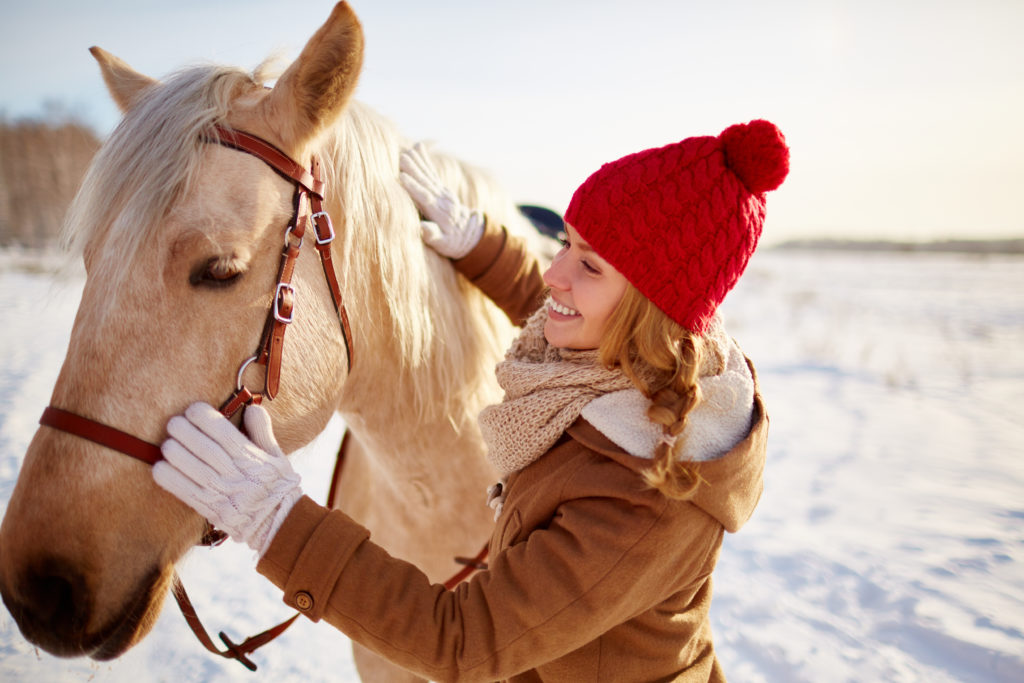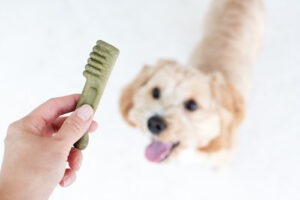Elizabeth D. Callahan DVM, DABVP, Equine Practice
Veterinary Medical Center, Easton MD
With the approach of colder weather, it is very important for horse owners to “winterize” your horses and
your horse care. Paying special attention to a few details now will allow both you and your horse to get
safely through the winter! The most important item to consider is water. We often see horses that develop
intestinal blockages, or impactions, in the winter. These can require extensive medical care and serious
cases may even require surgery or lead to death. This is usually due to two factors: first, in the winter we
feed large quantities of hay, which is very dry compared to summer pasture; and second, horses
consume inadequate amounts of water during the winter.
To avoid impactions, you must be sure that your horse consumes adequate amounts of water. First,
make sure your horse can get to the water supply. Frozen, slippery ground or sheets of ice around the
water trough make it difficult for the horse to get to water. Second, have the water warmed to about 50
degrees. Studies have shown that horses will drink more water if it is not very cold. If the water is covered
in ice or is not heated, horses will drink inadequate amounts.
You can use stock tank heaters or heated water buckets to achieve this. It is very important to make sure
that you don’t allow horses access to electric cords or outlets if you use these items. There are also
insulated water buckets that will keep water warm for 6-8 hours.
Because horses drink anywhere from 15-20 gallons a day, adequate supplies of water are also important.
Because they are not getting any moisture from their food in the winter, they need even more water than
that in the colder months. Adding electrolytes to your horse’s food in very cold weather may encourage
them to drink a little more. Another thing to watch in the winter is your horse’s weight. Because of the
heavy winter hair coat and blanketing, it is easy for a horse to lose weight without an owner noticing.
Make it a point to check your horse’s weight with a weight tape, or check his condition by feeling his sides
through the winter hair coat at least once a week. This will allow you to catch any weight loss before it
becomes a problem and to adjust your feeding program quickly.
Horses keep warm by digesting hay, not by eating grain. A 1000 pound horse generally needs between
10-15 pounds of hay daily. In cold weather, that can increase up to 20% more, which would be between
12-18 pounds daily. Make sure your horse is getting plenty of hay, especially when it is cold. It is also
important to feed good quality hay, as poor, stemmy hay is harder to digest and can also lead to
blockages. Blanketing most horses is not necessary. Horses prefer colder temperatures than we do and
do quite well even in below zero conditions. Blanketing may actually make a horse with a heavy coat
colder, as it flattens out the hair coat and eliminates the “loft” or insulation trapped between hairs. Older
horses, clipped horses or those with very thin coats may need blankets. If you do blanket, the blankets
should be removed daily and the areas checked for rubs and sores, which can become extremely painful
and can lead to infections and open wounds.
Foot care is just as important in winter as it is in the summer. Frozen ground can lead to bruises and
abscesses, as well as just sore feet. Although hoof growth is slower in winter, it is important to keep
regular appointments with your farrier in order to prevent damage to the hoof. Ice and snow can also pack
into the hoof and cause large ice balls, which can make it difficult for your horse to walk and increase the
risk of injury. Sometimes special pads are indicated to keep snow from packing into the foot. You can also
try to coat the foot bottom with Vaseline or non-stick cooking spray to keep the snow out.
If you do continue to ride in the winter, make sure you don’t overdo it in very cold weather. Muscles take
longer to warm up and cool down in cold weather, so longer periods of walking are indicated before and
after heavy exercise. Also, if you are doing hard work and your horse is sweating, make sure you dry her
thoroughly after exercising to prevent chilling. This may mean clipping the coat, or using different
methods to dry the coat after exercise. Very cold temperatures, such as below 20F, can be dangerous to
the lungs, and heavy exercise should be avoided when it is that cold.
These tips should help keep you and your horse happier and healthier this winter. If you have any
questions about your horse or her care, please contact your veterinarian for more information.






